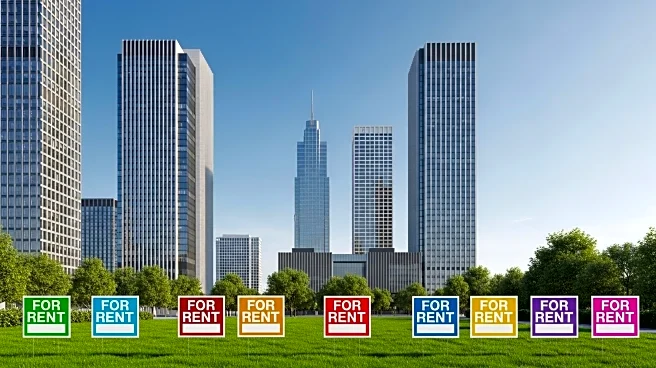What's Happening?
Zillow has released a report highlighting cities where renters can find apartments for less than $1,000. The analysis focused on the 100 largest metropolitan areas in the U.S., revealing that cities in the Midwest and South offer the most affordable rental options. Wichita, Kansas, leads with 54% of its apartments priced under $1,000, followed by McAllen, Texas, at 50.6%. Other cities with significant shares of affordable rentals include Little Rock, Arkansas, Toledo, Ohio, and Oklahoma City, Oklahoma. Conversely, cities like Boston, Miami, and Washington, D.C., have less than 1.7% of listings under $1,000. The report also examined affordability in terms of rent as a percentage of median household income, finding Ogden, Utah, as the most affordable market.
Why It's Important?
The findings are significant as they provide insights into housing affordability across the U.S., particularly in regions where renters can save more effectively for homeownership. With rising home prices and rents, identifying affordable rental markets is crucial for individuals looking to manage living costs and save for future investments. The report highlights disparities in rental affordability, which can influence migration patterns and economic opportunities. Cities with lower rental costs may attract more residents, potentially boosting local economies and altering demographic trends.
What's Next?
As rental prices continue to rise, more individuals may seek out these affordable markets, potentially increasing demand and influencing local housing policies. Stakeholders, including city planners and policymakers, may need to address the balance between affordable housing and economic growth. Additionally, renters in high-cost areas might consider relocating to more affordable cities, impacting local economies and housing markets.
Beyond the Headlines
The report underscores the broader issue of housing affordability in the U.S., which has implications for economic inequality and access to homeownership. As affordable housing becomes scarcer in major cities, the need for innovative housing solutions and policies becomes more pressing. This could lead to increased advocacy for affordable housing initiatives and changes in urban planning strategies.









